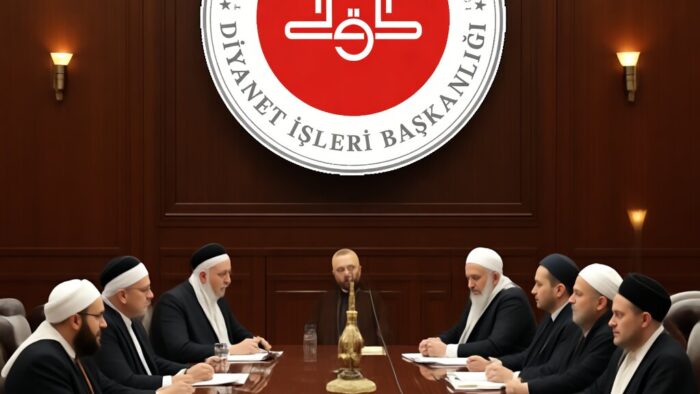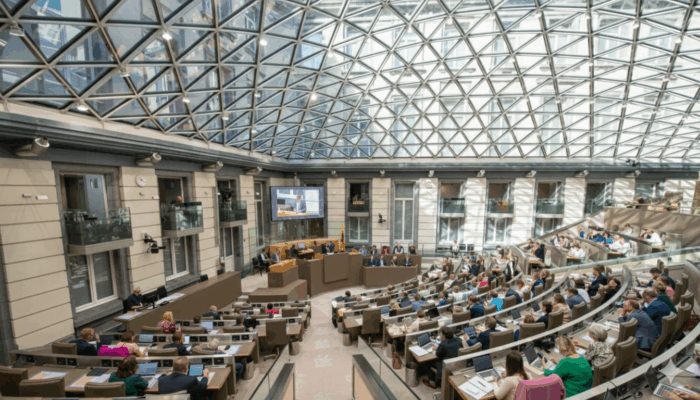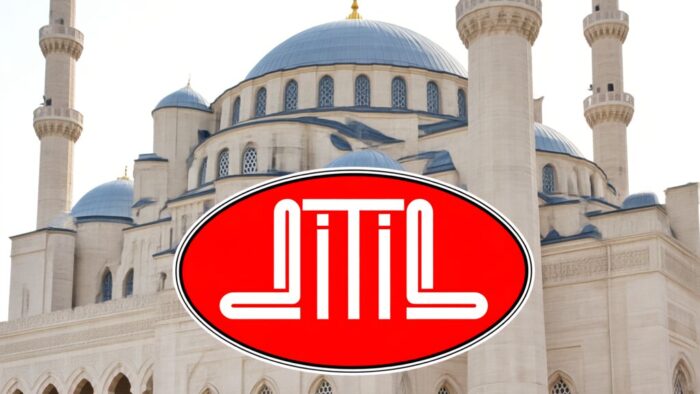The Diyanet President’s Islamic world unity address brought together senior Turkish officials and the World Muslim Scholars Union General President at Gaziantep Forum II. On 22 October 2025, Turkey’s Presidency of Religious Affairs reported that Prof. Dr. Safi Arpaguş delivered his message alongside Gaziantep Governor Kemal Çeber, World Muslim Scholars Union General President Ali Muhyiddin al-Karadaği, Diyanet Deputy President Dr. Hüseyin Hazırlar, and other prominent officials at the conference themed “Where is the Islamic World Heading? Perspectives for a Strong Future.” The article begins:
Diyanet President Prof. Dr. Safi Arpaguş stated that the Islamic world urgently needs to begin a journey of return to its essence, saying, “The salvation recipe for Muslims and all humanity exists in the Quran, in the Sunnah, and in our civilization heritage that emerged from these two.” Diyanet President Prof. Dr. Safi Arpaguş participated in the “Gaziantep Forum II” program organized in Gaziantep with the theme “Where is the Islamic World Heading? Perspectives for a Strong Future.” President Arpaguş, in his speech at the Şahinbey Congress and Art Center, noted that differences such as race, language, sect, and school of thought, each of which are riches in the Islamic geography from Turkistan to Western Sahara, from Africa to the Balkans, have been turned into tools of conflict, stating: “The share of external interventions in all these events cannot be ignored, of course.
The World Muslim Scholars Union is the same organization known as the International Union of Muslim Scholars (IUMS) headed by its president Ali al-Qaradaghi. The IUMS is a prominent organization of Islamic theologians, sometimes described as the “supreme authority of the Muslim Brotherhood.”
Key Points
- The Gaziantep Forum II program was attended by Gaziantep Governor Kemal Çeber, World Muslim Scholars Union General President Ali Muhyiddin al-Karadaği, Diyanet Deputy President Dr. Hüseyin Hazırlar, Gaziantep Islamic Science and Technology University Rector Prof. Dr. Şehmus Demir, and Turkey National Agency President İlker Astarcı.
- President Arpaguş stated that the Islamic world must urgently begin a journey of returning to its essence and find solutions to problems from the Quran, Sunnah, and its own civilization roots.
- The Diyanet President emphasized that Muslims have no way out except to develop cooperation in scientific, intellectual, political, economic, military, and similar fields and to establish common institutional structures.
- Arpaguş declared that especially events on the Palestine and Gaza axis have shown that the Islamic world can only solve its own problems without external interference when it develops cooperation.
The Diyanet: Turkey’s Vehicle for Religious Influence Operations
Turkey’s Presidency of Religious Affairs, known as Diyanet, functions as a sophisticated vehicle for Turkish influence operations across Europe and beyond. Founded in 1924 to monopolize control of Sunni Islam under state oversight, the institution transformed dramatically after President Erdoğan’s Justice and Development Party took power in 2002. The AKP quadrupled Diyanet’s budget and installed leaders aligned with its political agenda, converting a once-secular institution into a primary instrument of Turkish soft power. With a 2025 budget exceeding $3.7 billion, Diyanet oversees nearly 90,000 mosques domestically and operates in 145 countries, employing over 143,000 personnel.
The organization’s transnational reach centers on controlling religious discourse within diaspora communities through networks like DITIB, Germany’s largest Turkish-Muslim umbrella association. Diyanet sends imams to these mosques and pays their salaries through Turkish consulates, maintaining direct control over sermon content delivered across thousands of European mosques. Beyond religious services, these imams have participated in intelligence gathering on Turkish dissidents abroad. Germany cut funding to DITIB in response, while France closed Diyanet’s bank accounts and ended programs allowing foreign countries to send religious teachers without French oversight.
Turkey uses religion to gain political, ideological, and security influence particularly in regions with significant Turkish immigrant populations. The Diyanet Center of America exemplifies this strategy, overseeing numerous U.S. mosques. In Belgium, Diyanet’s president met with Turkish NGO leaders and politicians during official visits, coordinating through the Belgian Diyanet Foundation, which controls approximately 70 mosques. These networks intersect with organizations including the Union of International Democrats and groups linked to the Millî Görüş movement.
European governments increasingly view Diyanet’s expansion with alarm. Austria passed legislation prohibiting foreign religious officers from delivering services, forcing dozens of Diyanet imams to return to Turkey. Germany debates similar measures while documenting Diyanet’s role in pro-Erdoğan propaganda and surveillance. Despite these countermeasures, Diyanet continues expanding, allocating $17.3 million in 2025 for training programs designed to recruit diaspora members holding citizenship in host countries, train them in Turkey, and deploy them as locally credentialed imams who maintain loyalty to Ankara’s religious and political direction.
External References:
— Transformation of the Turkish Diyanet both at Home and Abroad: Three Stages
— Transnationalisation of Turkish Islam: Navigating Global Influence Through Faith
— Erdogan’s notorious religious authority eyes global expansion, aiming to reach 2.1 million people abroad in 2025
Disclaimer:
The Global Influence Operations Report (GIOR) utilizes AI throughout the posting process, including the generation of summaries for news items, introductions, key points, and, often, the “context” section. We recommend verifying all information before use. Additionally, all images are generated using AI and are intended solely for illustrative purposes. While they represent the events or individuals discussed, they should not be interpreted as real-world photography.











